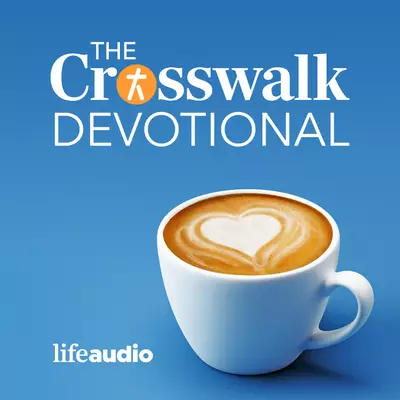How to Foster Christian Community
The purpose of fostering a Christ-like community is to share the same love God has shown us. He called us to spread the Gospel and the only effective way to do that is through community. What we must remember is that our time on this Earth is limited and so many of us don’t realize just how limited.
SUBSCRIBE to our sister podcasts:
Your Daily Prayer: https://www.lifeaudio.com/your-daily-prayer/
Your Daily Bible Verse: https://www.lifeaudio.com/your-daily-bible-verse/
Full Transcript Below:
How to Foster Christian Community
By Aaron D’Anthony Brown
“And let us consider one another in order to provoke love and good works, not neglecting to gather together, as some are in the habit of doing, but encouraging each other, and all the more as you see the day approaching.” (Hebrews 10:24-25, CSB)
How We Neglect Community
A lot of us have thoughts on community. What it is, what it is not, but most of us don’t know how to create community. Not exactly.
We do know how to start or at least keep a few relationships. Namely our friends, close relatives. Yet, hardly ever do we venture out from within those oh-so-comfortable bubbles. Perhaps, that is why our country is more divided than during the Civil War. Perhaps that is why loneliness, especially for men, is at an all-time high. The church isn’t exactly the same as the culture, not yet, but we certainly do imitate society. And on the subject of sticking to our comfort zones, being afraid to meet new people, and avoiding those who don’t think like us, we fall right in line with the nonbelievers around us. Thus, we diminish our ability to foster community.
If we are to live up to Jesus’ example, then we must recognize that creating communities happens when we make relationships with people, those with similar values like our friends, those we are familiar with like family, but also those with much less common interests. Community as Jesus created was not just the people who thought exactly as He did. Jesus knew those who loved Him, but also those were rejected by society, even the people living deep in sin.
Now, to be clear, Jesus was not friends with everyone. He was clear about what was sinful and what was virtuous, and Scripture admonishes us not to be unequally yoked (2 Corinthians 6:14). What we ought to take away then was that Jesus created community with those who were not opposed to community with Him. To be in community is to be in relationship with others. Relationships that may be deep or simplistic, but they are all intentional.
As Christians we have a tendency to get excited when talking about community in the abstract, but when the opportunity comes to talk to strangers, estranged family members, people with different beliefs than us, suddenly the idea of community becomes much more difficult. However, difficulty is no excuse for inaction.
Just as Jesus’ disciples learned how to interact with one another and carry on Jesus’ means of fostering community, we must do the same. Only after recognizing the ways in which we neglect community, we can then start finding ways to create it.
Intersecting Faith & Life:
If you genuinely want to foster community, but have not developed the skills needed to do so, then here are several practical steps you and I can take today to move in that direction.
Start With Genuine Interest
Many people spend more time talking about themselves as opposed to listening to another because of where their interest lies, in themselves. We can counteract this and form community by being curious about other people. Genuinely curious. Authenticity gives people a positive behavior to emulate and makes them feel more comfortable being around you.
Asking Questions
After curiosity comes questions, questions that help us get to know one another better. We don’t need to understand other people completely, but we should want to understand them enough. Enough to honor them and honor God, enough to make them feel like a part of the Body of Christ.
Be sure to ask more than one question too. Listen to the information they provide and follow up based on the response.
Listen to Understand
Who can relate to the experience of sharing something personal only to be cut off by the very person who asked you the initial question? Some people listen to respond and not to understand. If we are genuinely curious about people, then we want to get to know them better. We already know our thoughts and values, but we don’t know the other person in the same detail.
Look for Interaction
Aside from asking questions and listening, you should aim to do stuff with people that offers other forms of engagement. Attend a social event where you will get a chance to interact with someone you know. Party games are another great way to get to know people with low stakes. Ask someone out for coffee or a walk or lunch, again, with the goal of community.
Making People Feel Seen
The purpose of fostering a Christ-like community is to share the same love God has shown us. He called us to spread the Gospel and the only effective way to do that is through community. What we must remember is that our time on this Earth is limited and so many of us don’t realize just how limited. Jesus described life as a “mist” (James 4:14). Redeeming the time we have well means loving God wholeheartedly. We can’t do that if we neglect community.
Further Reading:
Proverbs 27:17
Matthew 28:18-20
1 John 4:19
Discover more Christian podcasts at lifeaudio.com and inquire about advertising opportunities at lifeaudio.com/contact-us.

Our goal with this podcast, is to encourage and challenge you, to help you worship and help you think, to give you practical application of Scripture as well as positive shared testimonies and honest struggles.
